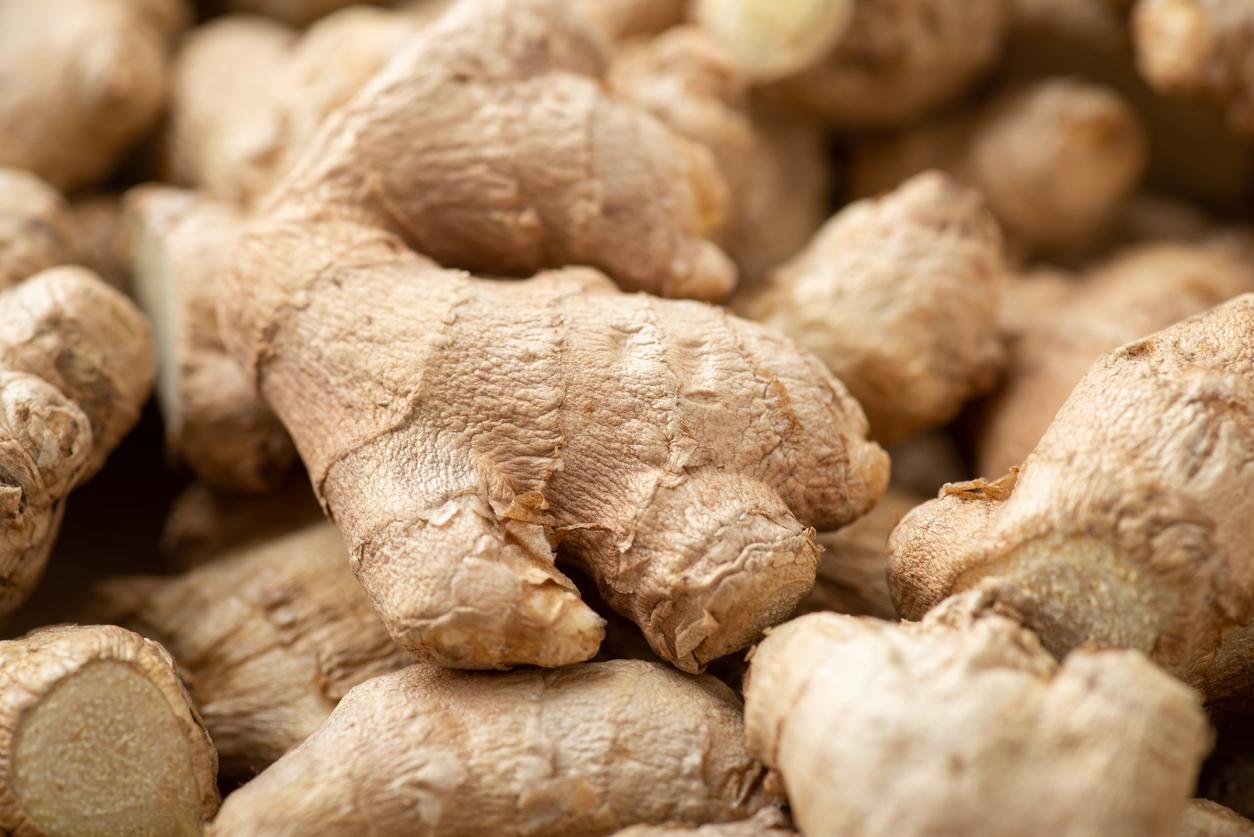
Expensive hype or really healthy?
Ginger tea, ginger beer, ginger drinks, ginger shots… Ginger is ‘hot’ and we don’t just mean the spicy taste. Ginger is in the spotlight because it is said to be so good for health. A shot of ginger a day has been touted as a remedy for many ailments. But should we all believe that?
A round on the internet teaches us that ginger is good for your resistance and digestion. It is said to help cleanse your body, promote blood flow, relieve pain and relieve nausea. It is also said to have an anti-inflammatory effect, which is why it is recommended for rheumatism. These effects are attributed to the antioxidant effect of substances contained in ginger. These are antioxidants that you also find in vegetables, fruit and herbs and spices.
What exactly is ginger?
Ginger is the root of the ginger plant. This plant grows in tropical areas where it is warm and humid. Think of India, China, Central Africa and Australia. Ginger, like turmeric, is a spice and it gives dishes a spicy, pungent, hot taste. Ginger contains carbohydrates and fiber. It also contains potassium, some iron and magnesium and also some of the various B vitamins and a little bit of vitamin C. You often find ginger as an ingredient in recipes of Asian origin. Fresh ginger can be bought at the supermarket or greengrocer. But ginger was also always available as powder, syrup, oil and candied. Recently, a huge selection of ginger teas, ginger drinks, ginger beers and ginger shots has been added.
What is a ginger shot?
The basis of a ginger shot is pressed ginger root, so pure ginger juice. The taste of this is so intense and spicy that it is combined with something made of juice, such as orange juice or lemon juice, or with sugar syrup. And even then, a ginger shot is usually only a small shot glass full because of its pungent taste. You can easily make a ginger shot yourself in a juicer or food processor: peel ginger root, cut into cubes and press. Of course you can also buy them, but they are quite pricey.
Are the claims correct?
We can be very brief about that: there are no approved claims for ginger. That makes sense if we look at the scientific research that has been done on ginger. First of all, not a whole lot of research has been done, and it has mostly been done in mice or in test tubes, not humans. In addition, the researchers often worked with ginger oil or ginger concentrate, which is slightly different from fresh ginger or ginger juice. Translating the results of these studies one-on-one to people is actually not possible. Whether the claims are correct is therefore (still) impossible to say with certainty. Moreover, it is impossible to say whether a single product is healthy. Your health is always about what else you eat and drink, and how much of the product you use. With fresh ginger you add flavor, some minerals and B vitamins and antioxidants to your diet. As part of a healthy diet, this is fine.
Ginger and Nausea
What there is some scientific evidence for is the relationship between ginger and nausea. Especially in pregnant women and in motion sickness, ginger can help against nausea. Nausea and vomiting caused by chemotherapy may also be relieved by ginger. It is always important to discuss this with the attending physician.
Can a ginger shot hurt?
If you like the taste, and it feels like a pick-me-up to take a ginger shot, there’s nothing wrong with it. Only if you use blood thinners is it good to discuss the use of ginger with your doctor. Ginger could enhance the effect of blood thinners. Also make sure that your ginger shot is not stiff from the sugar, because then you think you are being healthy, but you drink almost as much sugar with such a shot as with a glass of cola.
Sources):















